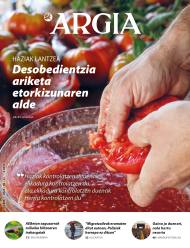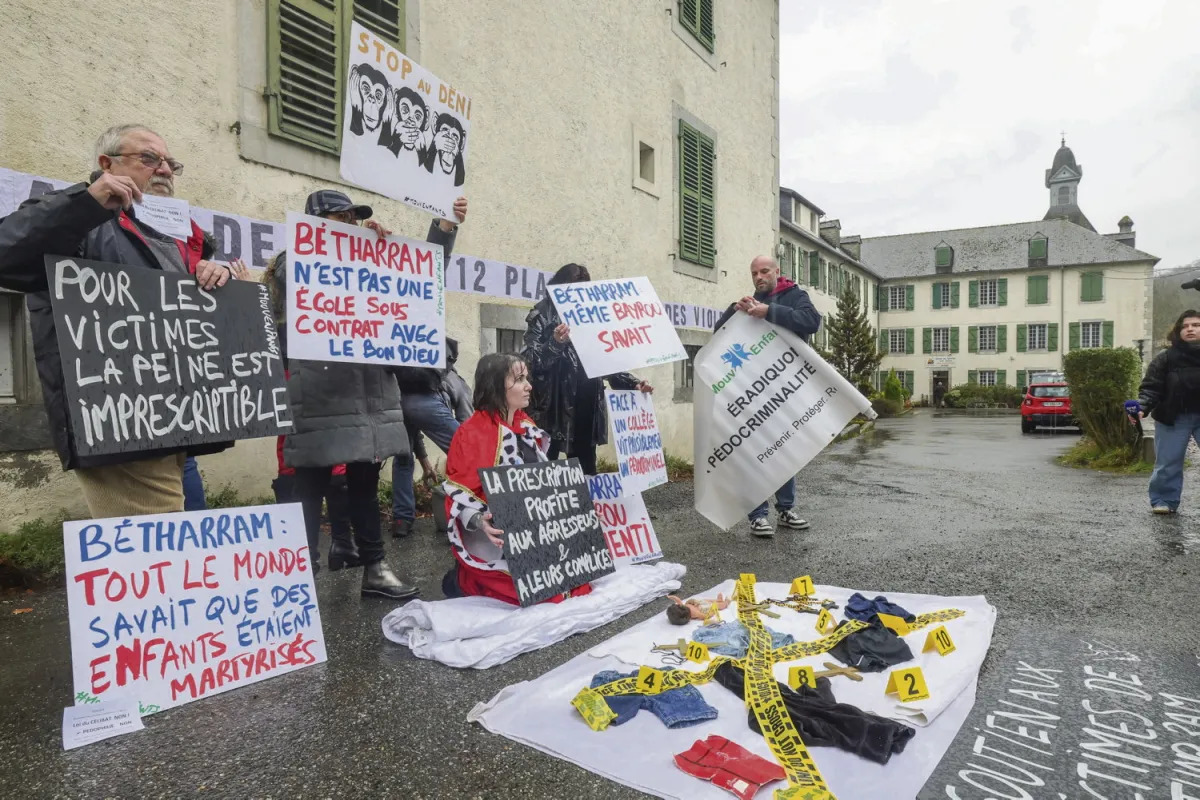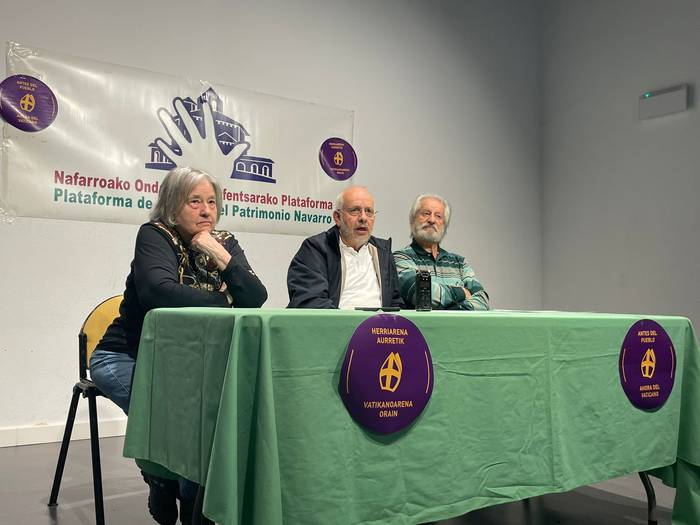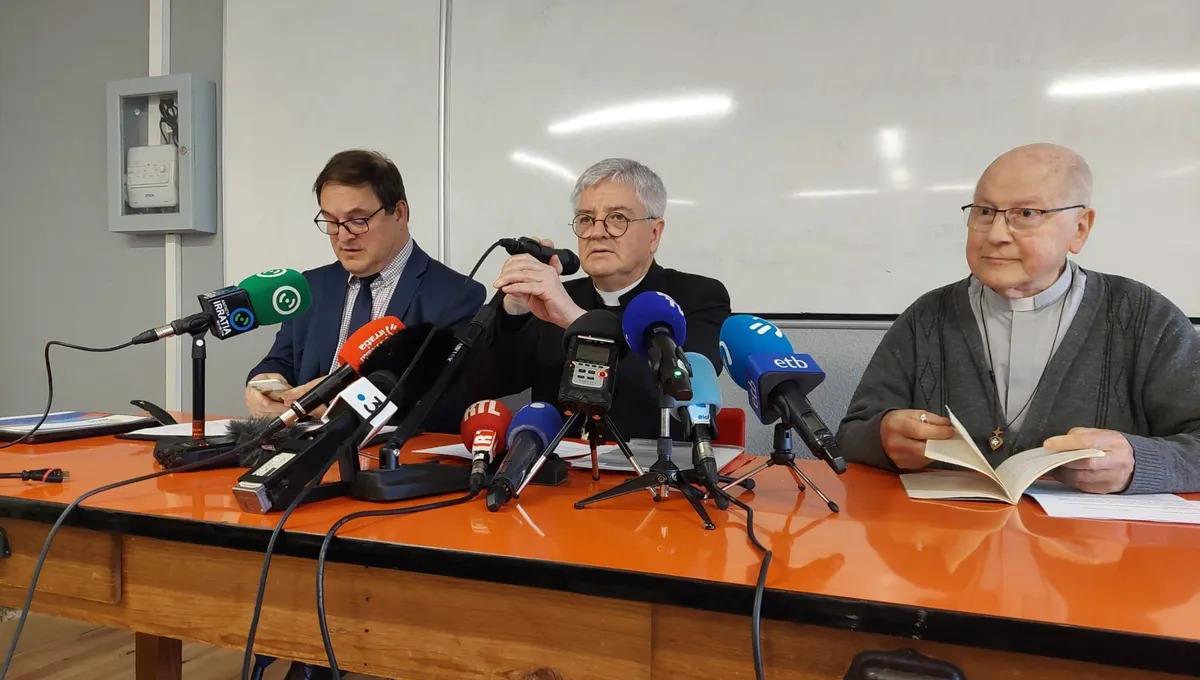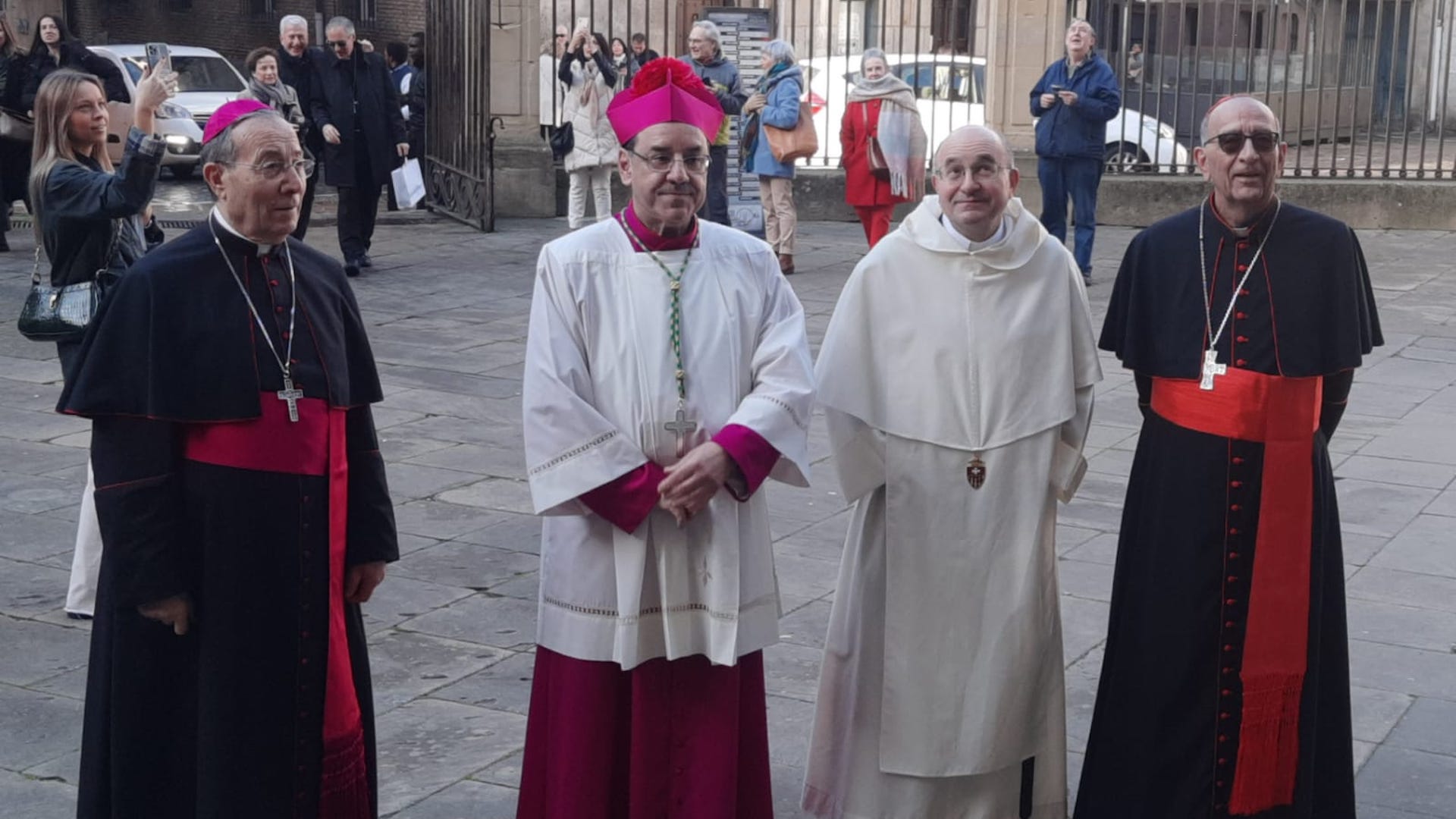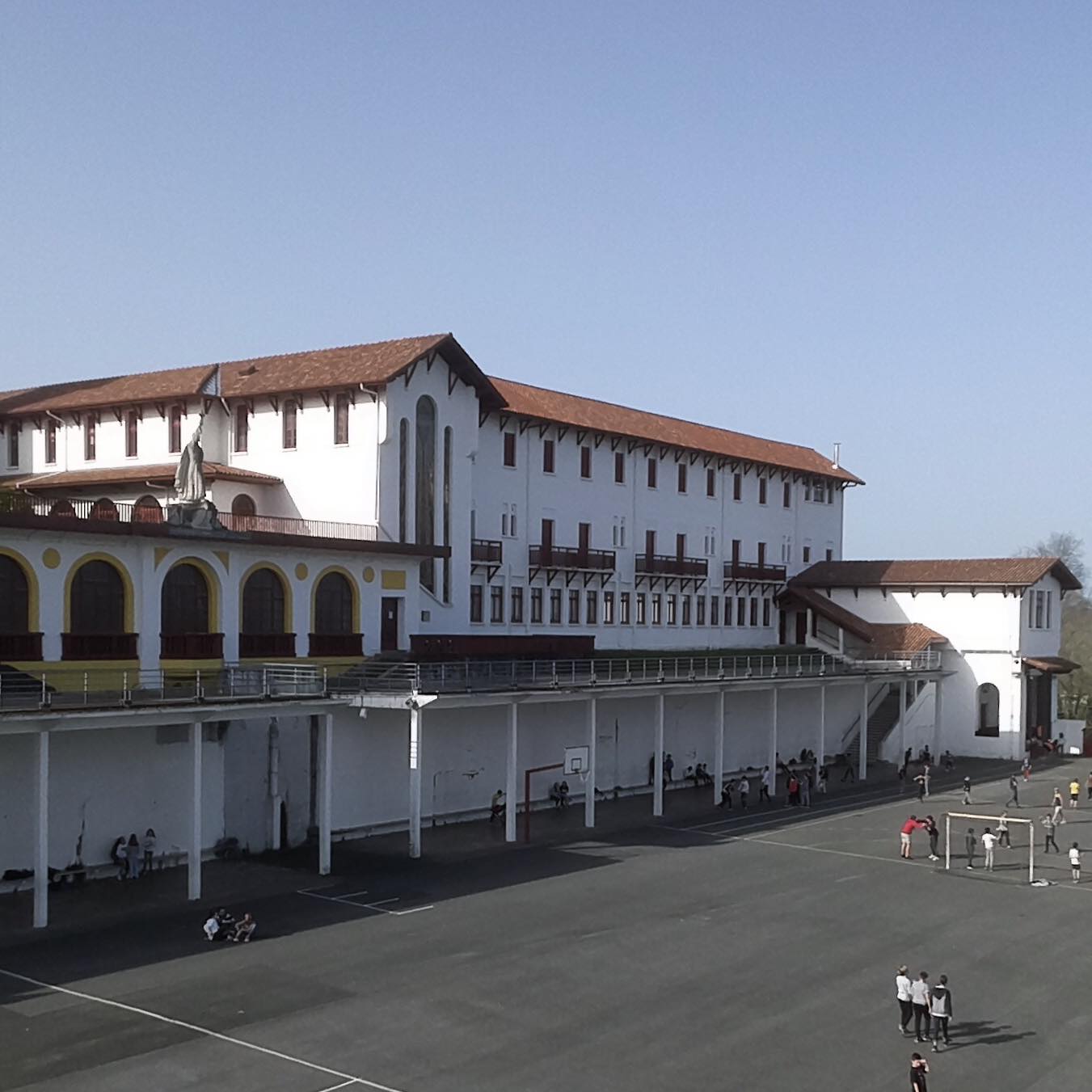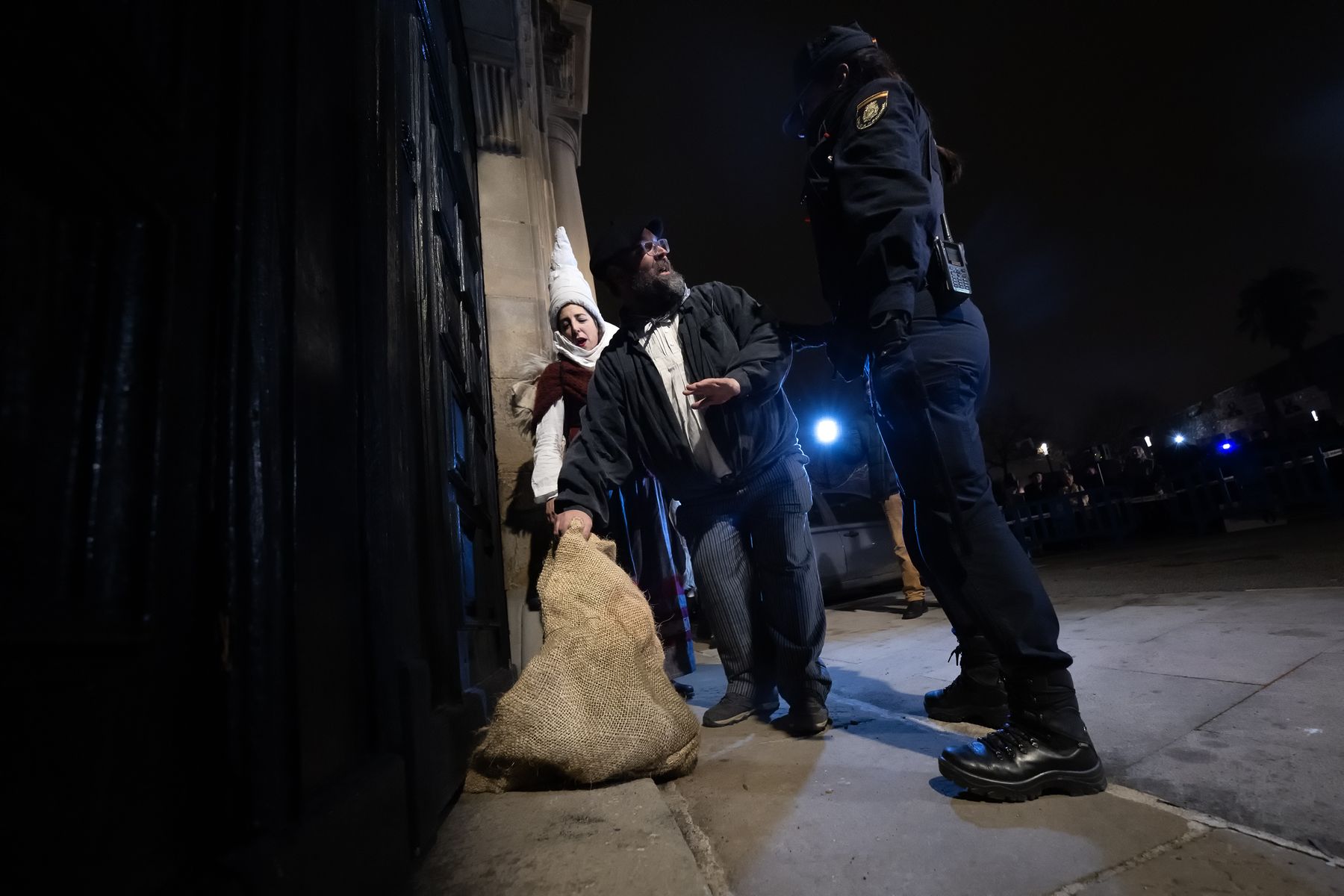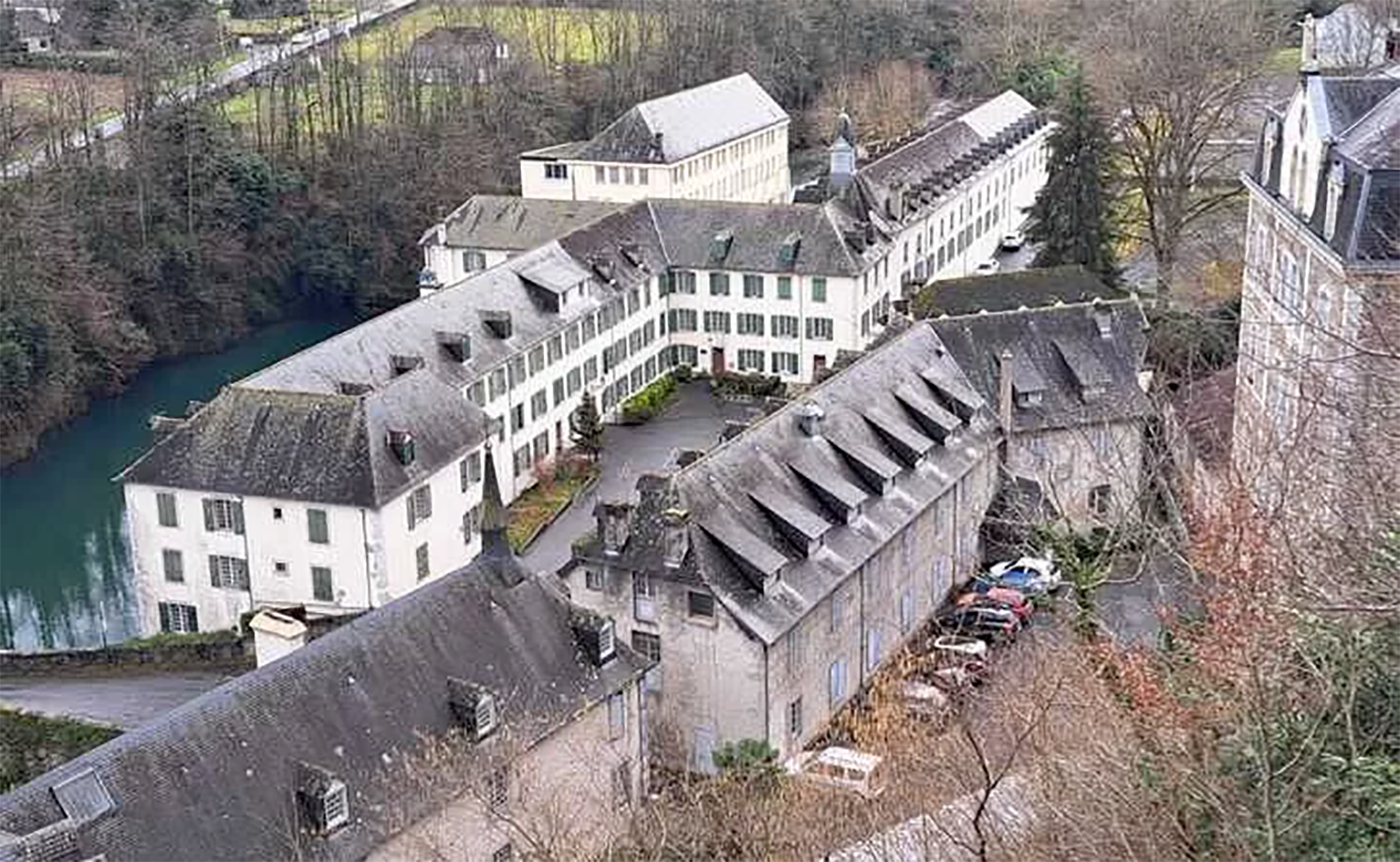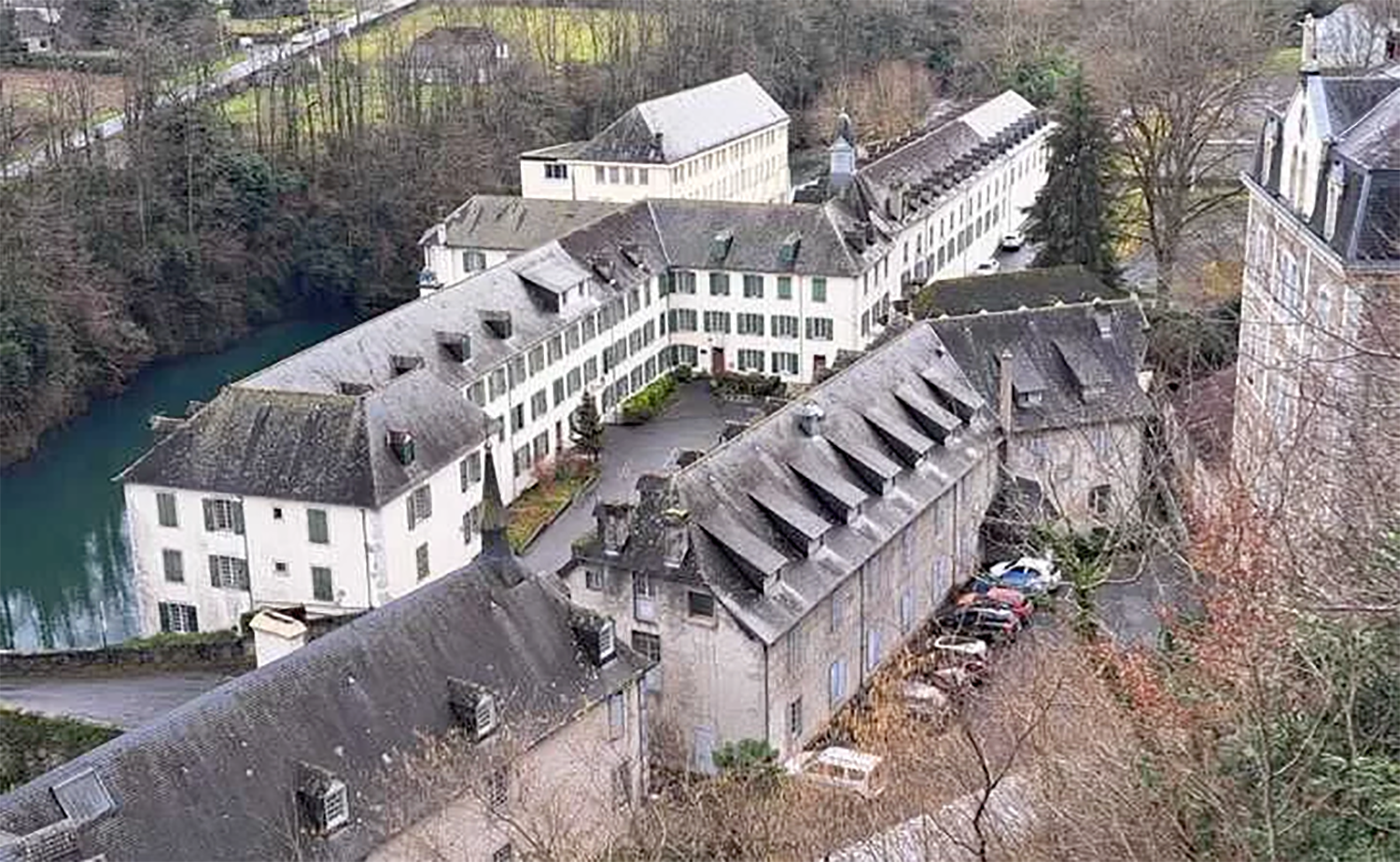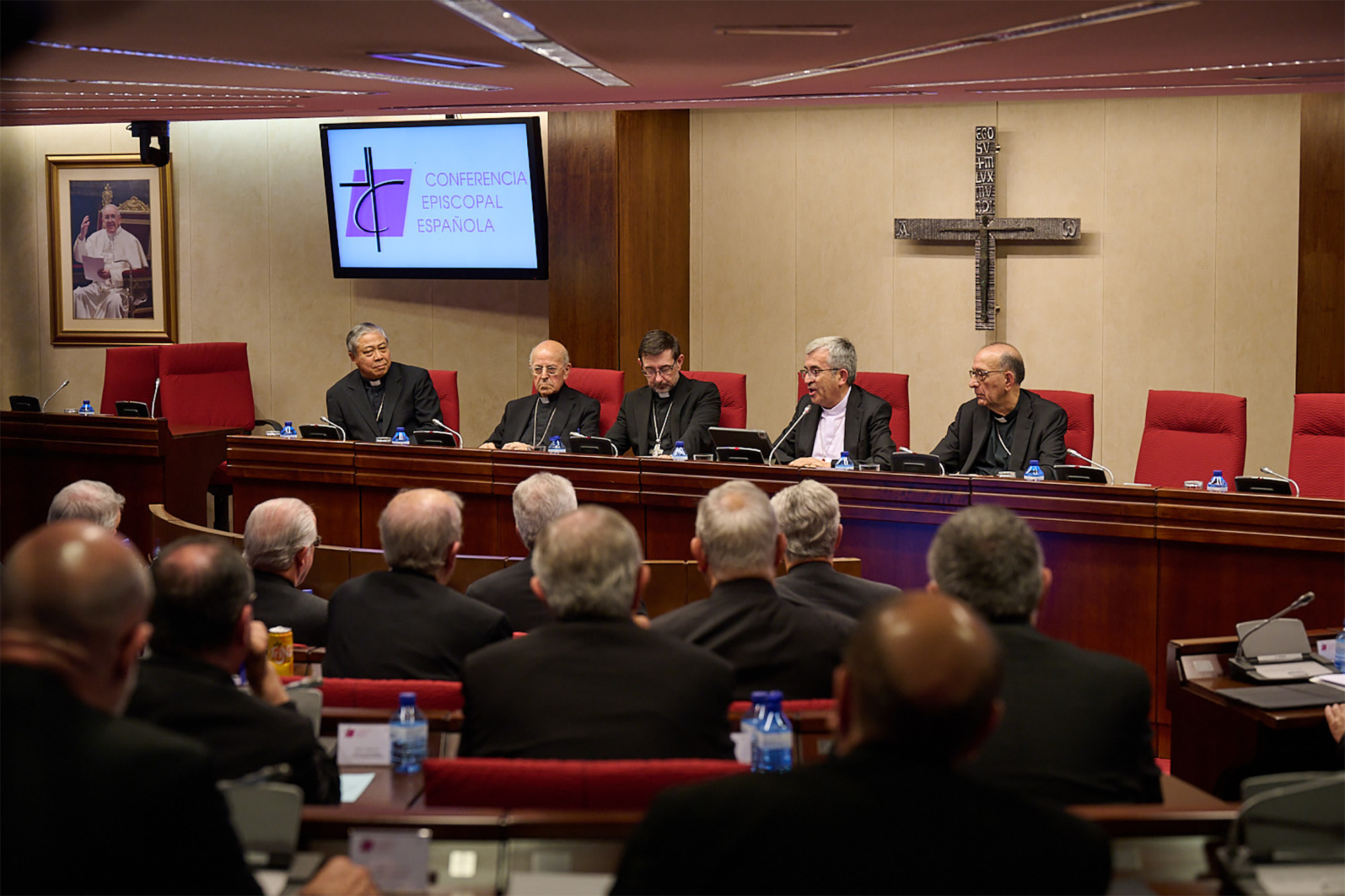"Those of us who went to Korea have kept the Basque very well"
- Born in Bermeo, he became Franciscan most of his life in South Korea, 40 years old. At one time he did what many did in the bumps, went to the convent. Subsequently, Uriagereka jumped into the world, into other foreign languages and cultures.

José Manuel Uriagereka (Bermeo, 1940)
He took the path of Arantzazu at the age of 10, and since then he has made a great Franciscan. In 1967, he chose South Korea as his destination, where he spent 40 years in parishes of each other. Possessing an exceptional ear, he is a tanned organist, although he is not afraid to play other instruments. The stained glass also has several works, according to some churches in South Korea. And the technology hasn't freaked out either: the test is a sleek powerpoint with over 400 photographs that capture the time that's been done in that country.
You're not over 84 years old...
I met them on September 4! Everyone asks me how I am. “Well, wait. Go wrong!” I say. Ha ha ha! I was born in Bermeo in 1940, a family of five children. We were two and three girls. We lived in the farmhouse, in Errene-Zubin. The street is still there, but everything is full of houses. In our time our cottage was the only house there. My father made barrels for fish. They called him Matsorri, and we're Matsorri, because in our house there was a big vineyard. Of course, the grape has grape leaves and hence our aliases. My father made txakoli all year round, to drink little by little.
What was your number in the family?
First, the oldest... and my father's displeasure when I told him I wanted to go to Arantzazu [to study fraile]. A great disgust! The mother reacted differently: “If it is the will of God... “Let him do it!” he said. I had no thought or anything for it, but I did! We were coming to school at the friars, and once, a monk came to our room. It was Jon Zubieta. He told us about Arantzazu. “Monacal studies... Good Location Arantzazu... Football, ball... Who wants to come? Raise your hand whoever wants to come.” I raised my hand with three or four other colleagues. On the left, Sanpedro, Barandika -- they also raised their hands.
And Arantzazu.
I walked in there when I was 10. First we were 31 students, and then the five of us were cured. Many abandoned her or sent her home because they did not have the will to stay there. You have to study there! For example, it was from my course Txasko [Pedro Anjel García Chasco. See ARGIA nº 2142, 2008, 26 June]. Labraza. He learned very well Basque! Another, Miguel Noble, Navarro, Kaskagorri; now in Arantzazu. I met several students. [Fernando] Mendizabal, [Luis] Villasante, Joxe Azurmendi, Joséba Intxausti, [Bitoriano] Gandiaga... Win! It has been special, there is no poet like him... We were all students, but because we belonged to different courses, we had no contact.
You also told us that we had to study. It wasn't all football and ball.
No! And Latin, and French -- we also get Euskera classes. I would say that since I was there! We had Pedro Anasagasti as a professor. This is a neighbor of Bermeo from a farm.
He also studied music. You're known as an organist...
Great fame... In Arantzazu, in the morning and afternoon prayers the organ was played in a tone. And to keep that tone, everyone made their games, and with them I let myself play the organ. I didn't have a music teacher, I started listening to my ear, and so I learned how to play the organ. However, before Arantzazu, I started studying solfeo in Bermeo, with a certain Erauskin, but I didn't like it. I started throwing my father away, but at Erauski I was so boring, I made him a week and I told my father: “I’m not going anymore!” Erauskin said to my father, “Don’t throw the child back to my school, because it doesn’t have free music.” And now in Bermeo I touch the organ! Ha ha ha!
.jpg)
You've touched the organ all your life and flute as well.
I really liked flute! Your nice sound! And in Korea, he always said the same thing, until you told me. I will give you one! And he gave it to me. What a beautiful thing! I also learned to play the txistu, the guitar and the accordion. Erauskin said he had no gift for music, but he didn't get it right! More than learning Solfeo, my ear has helped me. Listen, tocad, or try to play. This is how I learned.
The friar remained in Arantzazu until he was 25 years old, studying to the priesthood here and there: We started in Arantzazu, we continued in Forua, Zarautz and Olite, and we returned to Arantzazu, where the friar was ready for training... In his case, the time when Oteiza was making apostles.
Yes, working there to make apostles Oteiza. We looked at her. [Xabier] Eulate stained glass! I, for example, made stained glass windows in Korea, inspired by Eulate's work. Still, I learned how to make stained glass with the Donostian painter. [José Luis] Iriondo (San Sebastián, 1931 – Bermeo, 2001). When he was in Bilbao, some nuns asked him for the stained glass windows, and as I was also in Bilbao that year, he got me by his side and helped me. That's how I learned, and then I made stained glass windows in Korea.
You said it, Korea. He ordered a priest and took the fate of South Korea...
But before I went there, I did the year in Bilbao, and then I spent three months in England, learning English. I was in Ascott, where the races are held, in a small convent. To go to Korea, we had to learn English. It was inevitable. Also then I learned from ear. There was a gala radio in the past, and I also had one. I didn't hear much, just a little bit, and I put in the siesta what I did. It was barely heard, but English entered my mind slightly. Subconscious.
Why did you choose the destination of South Korea?
My thought was always to go to South America after being ordained a priest. The Franciscans were going to Cuba, Argentina, Paraguay, Bolivia, Uruguay... and I was there too. But when we were theologians, a Dutch monk came to us who told us that they needed a Franciscan community in Korea and that, when they took their destiny, they would come to Korea. When that Dutch mentioned Korea, I said: “Korea? And why not? Let’s go to Korea!” Ha ha ha!
From Arantzazu to Korea is a great leap...
I was 27 years old and it was a big leap! It had to be 13,000 kilometers, and the world is very different. However, there were ten of us; I wasn't alone. We were all Basque. In Oñati, Garate de Azkoitia, Abasolo de Donostia, Uribe de Gernika, was also one of the Ikaztegieta... We talked to each other in Korean and Basque. Ha ha ha! The Franciscans were growing up, but we didn't have a convent to gather all of us there, we were each in a parish, to be with the people and to speak in Korean. I first spent two years in Seoul studying languages... Then I spent two or three years in the town of Yinju, and then in other villages.
"South Korea has made a great deal of progress; they have come to the present category."
What work did you have in the parish?
Say Mass, help people, talk to them... But they were very poor people, and we started getting ready to work. Here, money was taken out, and there, bricks, tiles, etc. were made. Or we bought a piece of bush and put the cows, to help people ... When we went there, people ate only once a day, because they had no money. Often, just noodles. They also have rice, it's their basic food, but on more than one occasion they visit people at home and: “Wait a bit, I’ll go to the house in front of the rice, I’ll prepare it for you to eat.” I asked him: “And what do you have to eat?” “We, the noodle.” “That’s good! It also brings the noodle to me, which I love very much!” They were poor, very poor before.
Before? And now?
Look how it is! It has made tremendous progress. The people there have studied a lot, they have reached the present level very studied. They study a lot in school and a lot in college. Look now at your economy, your nanotechnology, your computers, your cars ... They're very advanced! Spain is not, he is ahead! The other day I read that many girls go from America to Korea, to straighten their faces, and [cosmetic surgery]. In the United States, this form of surgery is pure and hard, and people take the plane, go to Korea, operate and go home, operating, much cheaper than in their country.
He says that they have reached the current situation “with a lot of study”...
Yes, that is what they have done: to undertake, to undertake and to undertake. They say, “Insistence is bad,” but in the end, you get what you wanted. And when there's been Olympics, they've picked up so many medals! They say that then-President [Park-Xung hee] propelled that progress. He was a dictator, but at least he did. Then her daughter was president ... I taught him how to play the guitar!
.jpg)
And how did the struggle of the dictatorship and the rest happen?
We also participate in the demonstrations with the people there. The authorities also knew that, and the police, or rather, and instead of allowing them to stay on the site more or less two of our monks, allowed them to stay alone for a few days. We also receive such a punishment. But we weren't hiding in convents like in Havana people who were against the government, because at that time we had few parishes. We couldn't leave anyone at home.
In 40 years did you come to the Basque Country?
Yes. We first started coming every five years. And we were here five months. I arrived like this three or four times, and once I told the provincial: “Instead of five years, we are better off going three years to three, because five months there, we don’t know what to do!” And so we changed: we came from three years to three years and we were here three months. Much better.
The religious came from America even when their parents died...
Yes. When my father died, for example, it was too late to come, I was not made known the time. But in my mother's case, I got a warning the day after death, on Saturday, and on Sunday I was able to catch the plane and return. And I saw it. I died, but I saw him, and I myself made the Mass of Departure. I also sang a verse to him: “The one who was born in the house Larraurian de Sollubepe / among all the children... the one who was good and refined / all of us here we have gone to see the Lord / that in life there has been peace and happiness”.
"If Arantzazu was born again?... Not knowing more...? I don't know. Knowing what I know now...”
And there you did 40 years and you came forever.
There I saw that the Franciscans had become very enlarged, that I had nothing to do with it, and that there were no people here. And in 2007, I came. Bermeo's father, Adrián [de Zabalgogeaskoa], asked the provincial: “Please bring Matsorri to Bermeo.” Ha ha ha! I came to taste, because it is my people Bermeo! It's changed a lot, a lot. Also the Basque. My brother-in-law also says: “You’ve been in Korea for 40 years and you’re still doing the Bermeo Basque.” It's like before, it means. I myself am amazed that I have not forgotten the word here. There is another thing I have felt, and that is that those of us who went to Korea, the Basques, have kept the Basque very well. But to South America... and those who left came in Spanish.
Come and what did you start in Bermeo?
Collaborating in the convent. They came from Korea, and sometimes they asked me to touch the organ. “Do I touch the organ now? But I forgot to touch the organ here!” “You’re going to play!” Here the famous organist was Father Aristi, and he said to me: “Matsorri, do I want to go to Zarautz [Franciscan Convent] and you will play the day of San Antonio?” And so on. Touch the organ, give masses in Mañu and Almike, and so on.
The Mañua cemetery is a very special cemetery in Sollube. There is buried Elbira Zipitria, the first post-war Miss in San Sebastian...
I do not know this! On the other side, Mañu's is a nice little graveyard...
Hey, Matsorri, and if you were born again, would you get your hand to go to Arantzazu like friar?
Would I be born again? Not knowing more...? I don't know. Knowing what I know now...
* * * * * * *
Freshly marched
“I am eight months old in Korea, soon nine; and in this time I have been able to learn something, both in the language and in the attitudes of the people. I once went to a mountain near Seoul. It went up a deep avenue, on the edge of the road, behind the mountain, completely guarded by the wind, a temple of Buddhists, next to a stream. I was thinking about doing a portrait of the temple inside, when I realized it was forbidden. This is the best picture of Korea.” (Uriagereka in the journal Anaitasuna, April 1965)
Seoul
“The streets of Seoul, always full of people, any day. Really bustling streets. Newspaper vendors, still kids, screaming with their pregnant mothers. The girls of the buses, naming streets. The wipers in the fight, to whom they will be cleaned; you will often see them washing two [cleaners] and then sharing the money. The traperos screamed with their big scissors. The more noise, the more money: this is the law.” (Uriagereka in the journal Anaitasuna, April 1965)
Eat twice
“In the last two years he has made his barracks in the south, where more rice is taken; but the government has helped something, and the accident has not been so bad. However, if we come to Seoul today, finding the trail of hunger is not easy, even if there are many poor people in some places. So far, and still today, most Koreans eat only twice. (...) Needless to say, in both of them you eat rice, mixed with grass, with some broth”. (Uriagereka in the journal Anaitasuna, April 1965)
LAST WORD
Final
Generations come and go behind each other. So, it's the last generation of Matsorri, who went to the convent in the girls or in the older boys, who made his life in the shadow of religion. Fortunately, many were missionaries and lived abroad a world banned here. They were able to live.
Frantziskok "Franciscomanía" zeinuarekin hasi zuen bere Aitasantutza. Fenomeno soziologiko horri esker, Vatikanoko boterearen zirrikituak aldez aurretik ezagutzen ez zituen gaztetasunaren ikono eta Elizako aldaketa-haizeen intsuflatzaile bihurtu zen.
Era berean,... [+]
Prentsaurrekoa eskaini dute ostegun honetan Marc Aillet Baionako apezpikuak, elizbarrutiko hezkuntza katolikoko zuzendari Vincent Destaisek eta Betharramgo biktimen entzuteko egiturako partaideetarikoa den Laurent Bacho apaizak. Hitza hartzera zihoazela, momentua moztu die... [+]
Elizak 23 kasu ditu onarturik Nafarroa Garaian. Haiek "ekonomikoki, psikologikoki eta espiritualki laguntzeko" konpromisoa adierazi du Iruñeko artzapezpikuak.
Lestelle-Betharramgo (Biarno) ikastetxe katolikoko indarkeria eta bortxaketa kasuen salaketek beste ikastetxe katoliko batzuen gainean jarri du fokua. Ipar Euskal Herriari dagokionez, Uztaritzeko San Frantses Xabier kolegioan pairaturiko indarkeria kasuak azaleratu dira... [+]







